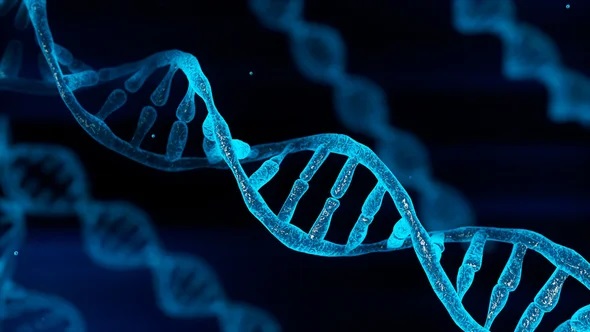Intelligent Design & Life
by Marshall Beeber

Introduction
The theory of intelligent design holds that certain features of the universe and of living things are best explained by an intelligent cause, not an undirected process such as natural selection. (click for reference)
Evidence of Intelligent Design In DNA
Dr Stephen Meyer of the Discover Institute gave a detailed explanation of the Origin of Information in DNA and the Origin of Life. He stated "As noted, biological information, such as we find in DNA and proteins, comprises two features: complexity and functional specificity. Computer codes and linguistic texts also manifest this pair of properties (“complexity” and “specificity”), what I have referred to throughout this book as specified information. Although a computer program may be similar to DNA in many respects and dissimilar in others, it exhibits a precise identity to DNA insofar as both contain specified complexity or specified information. Accordingly, the design argument developed here does not rely on a comparison of similar effects, but upon the presence of a single kind of effect — specified information — and an assessment of the ability of competing causes to produce that effect. The argument does not depend upon the similarity of DNA to a computer program or human language, but upon the presence of an identical feature in both DNA and intelligently designed codes, languages, and artifacts. Because we know intelligent agents can (and do) produce complex and functionally specified sequences of symbols and arrangements of matter, intelligent agency qualifies as an adequate causal explanation for the origin of this effect. Since, in addition, materialistic theories have proven universally inadequate for explaining the origin of such information, intelligent design now stands as the only entity with the causal power known to produce this feature of living systems. Therefore, the presence of this feature in living systems points to intelligent design as the best explanation of it, whether such systems resemble human artifacts in other ways or not."
Here, Stephen Meyer summarizes his argument:
Intelligent Design & Irreducibly Complex Molecular Machines
Molecular machines are another compelling line of evidence for intelligent design, as there is no known cause, other than intelligent design, that can produce machine-like structures with multiple interacting parts. In a well-known 1998 article in the journal Cell, former president of the U.S. National Academy of Sciences Bruce Alberts explained the astounding nature of molecular machines:
[T]he entire cell can be viewed as a factory that contains an elaborate network of interlocking assembly lines, each of which is composed of a set of large protein machines.… Why do we call the large protein assemblies that underlie cell function protein machines? Precisely because, like machines invented by humans to deal efficiently with the macroscopic world, these protein assemblies contain highly coordinated moving parts.
In the 1990s Dr Michael Behe, a PhD from the University of Pennsylania and professor at Lehigh University discovered that the bacterial flagella with its irreducible complexity conflicted with Neo-Darwinian theory. He wrote a book titled "Darwin's Black Box" which asserted that the only explanation for the origin of the flagella could be that of "Intelligent Design" rather than "Neo-Darwinian theory". To better understand Dr Behe's reasoning see the YouTube video below. (click for reference).
Intelligent Design & The Origin of Animals
In his book Darwin’s Doubt, Stephen Meyer considers the nature of animals and what is required to build an animal. He finds that only intelligent design can explain the abrupt origin of animal life in the fossil record, as well as the new information required to build the integrated nature of parts and systems that comprise animal body plans. Here’s how Meyer makes the case that intelligent design is the best explanation for many aspects of the origin of animals as witnessed in the Cambrian explosion.
Intelligent agents can generate new form rapidly as we see in the abrupt appearance of animals in the Cambrian fossil record. See the YouTube video below explaining the origin of animals in the Cambrian period.